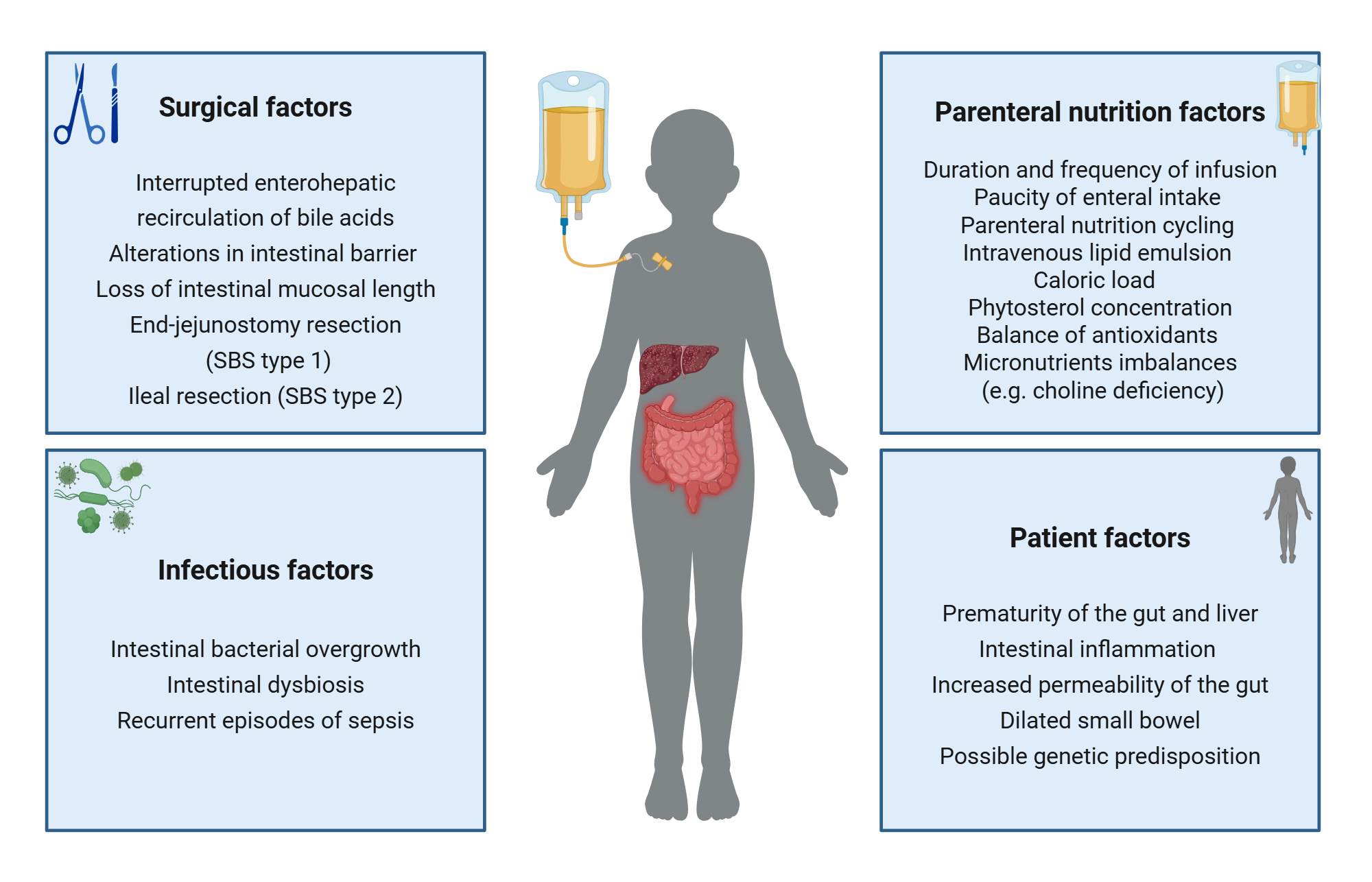

Factors contributing to the pathogenesis of IFALD. Factors contributing to the pathogenesis of IFALD include patient-related, infectious, surgical, and parenteral nutrient factors. Patient-related factors, such as gut and liver prematurity, intestinal inflammation, increased gut permeability, dilated small bowel, and genetic predisposition increase susceptibility to liver injury. Infectious factors, including small intestinal bacterial overgrowth, recurrent sepsis, and intestinal dysbiosis, disrupt the intestinal microbiome, promoting macrophage activation, hepatic inflammation, and cholestasis. Surgical interventions, such as end-jejunostomy and ileal resection leading to short bowel syndrome types 1 and 2, respectively, disrupt the enterohepatic recirculation of bile acids and the gut–liver axis, leading to activation of hepatic inflammatory pathways and alterations in bile acid metabolism. Lastly, PN-related factors, including the type and amount of intravenous lipid emulsions (ILEs), infusion duration and frequency, PN cycling, antioxidant balance, and micronutrient deficiencies (e.g., choline, taurine, glutamine) are associated with IFALD through phytosterol accumulation, oxidative stress, hepatic inflammatory pathways activation, and impaired bile flow. 2 14 Created in BioRender. Abi-Aad, S. (2024). IFALD, intestinal failure-associated liver disease; PN, parenteral nutrition; SBS, short bowel syndrome.